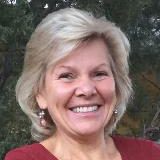Literacy Symposium 2019: Where Experts and Practitioners Partner for Classroom Success . . . Pajamas & Popcorn Optional
If you know me, it will be no surprise that I am a huge supporter of the Voyager Sopris Learning® Literacy Symposium. Where else can you learn from the field’s most influential researchers and practitioners all in one place, at a time convenient to you, while lounging at home in your pajamas?
Each summer, Dr. Louisa Moats and I invite distinguished national and international speakers to address current topics in the field of education. Our goal is twofold: improve educators’ expertise and bridge the gap in research to practice. The Literacy Symposium continues to add to the summer’s excitement. Here are this year’s highlights:
Charles Haynes, Ed.D., and Leslie Laud, Ed.D., team together to address the most complex aspect of literacy: written expression. I’m particularly impressed with their research-to-practice experiences in my area of the country, Boston. Practical yet well-grounded in research, this session is not to be missed.
Ever wonder how a good reader’s brain actually learns to read all those words on the page? Dr. Jane Ashby has an incredibly accessible approach to explaining such complex content. I’ve always loved learning from Dr. Ashby, and she’s a long-time consultant and supporter of our LETRS® trainers.
Since I’ve mentioned long-time supporters of LETRS, Nancy Hennessy, M. Ed., is right up there as one of the most influential trainers of our early years. Given her continued work with AIM Academy and studies about how we comprehend language, Nancy’s sessions are crucial to our understanding of reading and listening comprehension. We love having her voice back in the LETRS family.
With the goal of providing supports to a variety of educators, Dr. Mary Beth Calhoon lends her message about middle school intervention research. Did you know that not only “what” you teach, but “when” and “for how long” matters, too? This is a must-listen for anyone connected to these grade levels.
Are you confused by dyslexia definitions and differing state laws? Listen to Dr. Susan Brady’s provocative presentation, where she thoughtfully makes the case for the complexities of identifying dyslexia, describing why English is particularly difficult to read and spell.
Are you overwhelmed when attempting to keep current with research? Listen to Steve Dykstra discuss the importance of knowing what you are actually reading. If “disappearing rabbits” and “thinking Bayesian” are unfamiliar to you, you are in for a treat.
A dear colleague from New Hampshire, Dr. Melissa Farrall, authored important content about the similarities and differences of assessment tools. As a Specialist in the Assessment of Intellectual Functioning (SAIF), she provides information to consider when assessing students with expected reading and/or writing difficulties.
And, listen to Margo Shipp, an esteemed coach from the Ohio LETRS project, as she and Principal Mason Bryan discuss their districts’ growth, providing detailed guidance about what made the difference for all students’ success. We can all learn from their incredible story.
From reading research, to theoretical underpinnings, to analyzing assessments and teaching writing, it’s all discussed.
Even if you missed it, Literacy Symposium 2019 is available to you now. Access is affordable and simple—Register today and receive 25 hours of on-demand content.
I hope you make time to experience this wonderful resource. Get your pajamas and popcorn ready!


